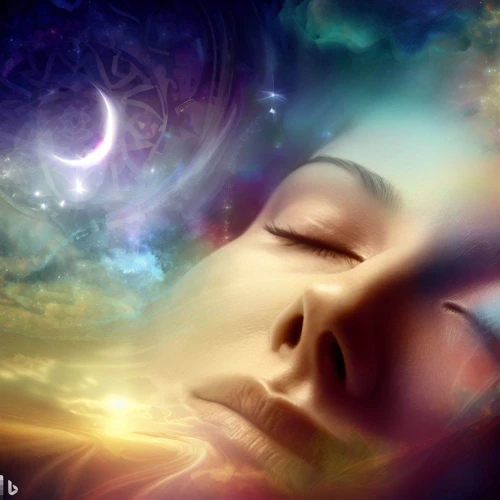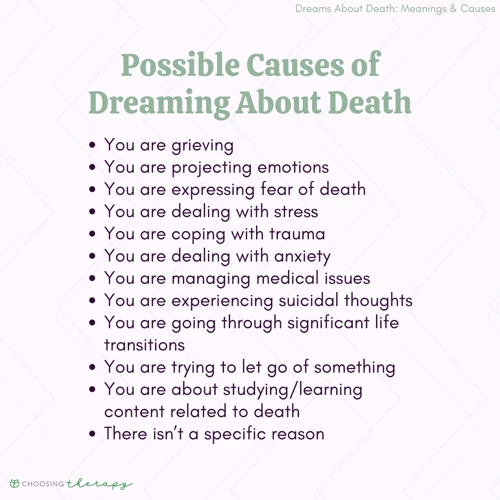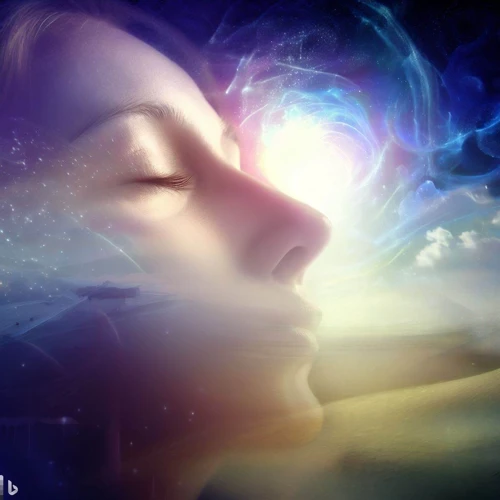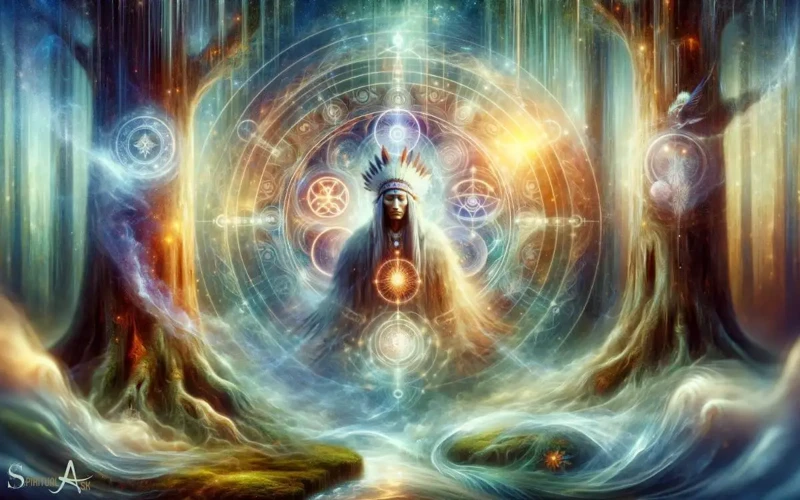The realm of dreams has long intrigued and puzzled humans. Whether they are vivid and fantastical or haunting and mysterious, dreams hold a wealth of meaning and symbolism. One particular enigma that has fascinated many is the occurrence of dreams about the dead. What is the significance behind these ethereal encounters? Why do we dream about loved ones who have passed away? In this article, we will delve into the depths of this enigmatic topic and explore various perspectives that seek to unravel the mystery of why we dream about the departed.
Understanding Dreams

Understanding Dreams
Dreams have been a subject of fascination and curiosity throughout history. These mysterious experiences that occur during sleep have intrigued psychologists, philosophers, and even everyday individuals. While the purpose of dreams continues to be debated, they are generally believed to serve various functions. Some experts propose that dreams provide a way for our minds to process and make sense of our daily experiences and emotions, consolidating memories, and helping us problem-solve. Dreams about someone can be particularly intriguing and can often leave us questioning their meaning and significance. There are different types of dreams that can occur as we sleep, each with its own unique characteristics and interpretations. Additionally, dream symbolism is a widely explored area, as these symbols can provide insights into our unconscious thoughts and desires. As we delve deeper into the realm of dreams, we can begin to unravel the complexities and unravel the mysteries that they hold.
1. The Purpose of Dreams
- Processing Daily Experiences and Emotions: One of the proposed purposes of dreams is to help our minds process and make sense of our daily experiences and emotions. As we sleep, our dreams may reflect the events and feelings from our waking life, offering a way to sort through and understand them.
- Consolidating Memories: Dreams also play a role in consolidating memories. They can help reinforce the information we have learned and the experiences we have had, promoting memory formation and retention.
- Problem-Solving: Some researchers suggest that dreaming can aid in problem-solving. Dreams may present scenarios and situations that allow our minds to work through challenges and find creative solutions.
- Exploring Unconscious Thoughts: Dreams provide a gateway to our unconscious mind, allowing us to access thoughts, emotions, and desires that may not be readily available in our conscious state. They can reveal hidden aspects of ourselves and offer valuable insights.
2. Types of Dreams
Types of Dreams
When it comes to dreams, they can manifest in a variety of forms and experiences. Understanding the different types of dreams can shed light on their meanings and interpretations. One common type of dream is known as lucid dreaming, where the dreamer is aware that they are dreaming and can actively participate in and manipulate the dream. Another type is recurring dreams, which are characterized by the repetition of certain dream themes or scenarios. Dreams about hiding from someone fall into this category, suggesting feelings of fear, evasion, or a desire to avoid confrontation. Prophetic dreams, on the other hand, are believed to provide glimpses into future events or outcomes. Additionally, there are symbolic dreams, which utilize metaphorical imagery to convey deeper meanings and emotions. Exploring the different types of dreams can provide valuable insights into the subconscious mind and the various ways in which our dreams manifest.
3. Dream Symbolism
- Dream Symbolism: Dreams are often filled with symbols that carry deeper meaning than what meets the eye. These symbols can be personal or universal, and their interpretations can vary from person to person. For example, dreaming about water may symbolize emotions, spirituality, or the unconscious mind. Snakes, on the other hand, are often associated with transformation and healing. Unlocking the meaning behind these symbols can provide valuable insights into our subconscious thoughts and feelings.
Dreams About the Dead

Dreams About the Dead
One of the most intriguing and enigmatic aspects of dreaming is the occurrence of dreams about the dead. These dreams can leave us with a mix of emotions, ranging from comfort and nostalgia to fear and confusion. There are several possible explanations for why we dream about the deceased. Firstly, dreams about the dead often involve personal connections. These dreams may provide an opportunity for us to reconnect with loved ones who have passed away, offering a sense of closure or even a chance to say goodbye. Secondly, dreams about the dead may be related to unresolved feelings or unfinished business with the deceased. These dreams can serve as a way for our minds to process and work through lingering emotions or unresolved conflicts. Lastly, dreams about the dead can also be interpreted from a spiritual perspective. Some believe that these dreams are a form of communication from beyond and can carry symbolic messages or guidance from the spiritual realm.
1. Personal Connections
- Personal Connections: Dreams about the dead often occur when there was a strong emotional bond or connection between the dreamer and the deceased individual. These dreams can serve as a way for the subconscious mind to process and cope with the grief and loss of a loved one. They may provide a sense of comfort or closure, allowing the dreamer to communicate with the departed and seek resolution.
2. Unresolved Feelings
In the realm of dreams, one possible explanation for dreaming about the dead is the presence of unresolved feelings. These dreams may serve as a way for our subconscious mind to confront and process emotions that have not been fully addressed or resolved in our waking lives. The deceased individuals who appear in our dreams may represent relationships or connections that were left unfinished or unsettled. These dreams can evoke a range of emotions, including grief, guilt, or even the desire for closure. By exploring and unraveling these unresolved feelings, dreams about the dead can provide an opportunity for healing and emotional growth.
3. Spiritual Interpretations
3. Spiritual Interpretations
When it comes to dreams about the dead, many spiritual interpretations exist. Some believe that these dreams serve as a means of spiritual communication, allowing the deceased to reach out to the living. It is thought that the spirits of our departed loved ones may visit us in our dreams to offer comfort, guidance, or closure. These dreams can be seen as a way for the deceased to convey messages or provide reassurance in times of grief or uncertainty. For some, dreams about the dead may also signify a continued connection with the spiritual realm and serve as a reminder of the existence of an afterlife or the presence of higher powers. These spiritual interpretations offer solace and a sense of connection to those who have lost someone dear, fostering a belief in the eternal nature of the soul and the ongoing bond with the departed.
Exploring Spiritual Beliefs

Exploring Spiritual Beliefs
When it comes to dreams about the dead, spiritual beliefs and interpretations play a significant role. Various spiritual traditions and cultures hold unique perspectives on the afterlife and connections with departed loved ones. According to some spiritual beliefs, dreams about the dead can be seen as a way for the souls of the departed to communicate with the living. These dreams are considered sacred and meaningful, offering guidance, closure, or the opportunity for reconciliation. In these interpretations, dreams are seen as a bridge between the physical and spiritual realms, allowing for communication and healing. Additionally, dreams can be seen as a means for the soul to convey symbolic messages to the dreamer, providing insight and guidance for their life journeys. As we delve into the exploration of spiritual beliefs surrounding dreams about the dead, we open ourselves to a rich tapestry of wisdom and understanding.
1. Role of the Soul
- Various spiritual beliefs posit that the soul plays a significant role in dreams about the dead.
- In some belief systems, it is thought that dreaming about deceased loved ones is a way for the soul to communicate and connect with the living.
- These dreams may serve as a means of guidance, comfort, or even a message from the afterlife.
- Some spiritual practitioners believe that the soul of the deceased visits the dreamer to provide closure, offer forgiveness, or convey important information.
- This perspective highlights the idea that dreams can serve as a bridge between the physical world and the spiritual realm.
- It suggests that dreams about the dead can offer a deeper understanding of the interconnectedness of our souls and the continuation of life beyond death.
2. Communicating with the Other Side
- Mediumship: Some people believe that dreaming about the dead is a way of communicating with the other side. In spiritualist beliefs, mediums are thought to have the ability to connect with spirits and convey messages from them. Dreams may be a conduit for these messages, allowing for a communication bridge between the living and the deceased.
- Signs and symbols: Another perspective is that dreams about the dead are symbolic messages from beyond. It is believed that departed loved ones may use symbols or specific signs that hold personal meaning to convey messages or reassurance. These symbols can range from familiar objects, animals, or even certain colors or numbers.
- Lucid dreaming: Lucid dreaming is a state where individuals become aware that they are dreaming while the dream is still in progress. Some individuals claim that they can use this lucid state to intentionally reach out to deceased loved ones and engage in conversations or interactions. This practice allows individuals to tap into their subconscious and engage with what they perceive as spirits on the other side.
3. Symbolic Messages from Beyond
- Symbolic Messages from Beyond: In some spiritual beliefs, dreams about the dead are seen as a form of communication from the other side. These dreams are believed to carry symbolic messages and guidance from departed loved ones or spirits. The symbols and imagery in these dreams are thought to be encoded messages that hold personal or universal meaning. Interpreting these messages requires a deep understanding of the individual’s personal and cultural symbolism. Some common symbolic messages in dreams about the dead include receiving comfort, forgiveness, closure, or even warnings. These dreams can be a source of solace and reassurance for those seeking connection with the deceased.
Cultural Perspectives

Cultural Perspectives
When it comes to understanding dreams about the dead, cultural perspectives play a significant role in shaping our interpretations. Across different cultures and traditions, there are diverse beliefs and practices surrounding the afterlife and communication with the deceased. Ancient traditions often view dreams as a conduit between the living and the spirit world, considering them as powerful messages from ancestors or spirits. Native American beliefs embrace the idea that dreams connect individuals with their ancestors, providing guidance and insight. In Eastern philosophies, dreams are seen as a reflection of the interconnectedness of all beings and may be seen as an opportunity for spiritual growth and enlightenment. Exploring these cultural perspectives allows us to gain a broader understanding of dreams about the dead and the significance they hold in different societies.
1. Ancient Traditions
Ancient traditions throughout history have held a deep reverence for the connection between the living and the dead. In many cultures, there is a belief that dreams about the dead are messages or visitations from the spirit realm. In ancient Egypt, for example, dreams were considered a pathway for communication with the deceased. The Egyptians would seek guidance and wisdom through dream interpretations, often using priests as intermediaries between the living and the deceased. Similarly, in Ancient Greece, it was believed that dreams could provide insights from the gods or the souls of loved ones who had passed away. These ancient traditions highlight the profound significance that dreams about the dead have held throughout history and across various cultures.
2. Native American Beliefs
- 2. Native American Beliefs: Native American cultures have rich and diverse beliefs surrounding death and the afterlife, which also influence their interpretations of dreams about the dead. For many Native American tribes, dreams are regarded as sacred and are believed to be a way for the spirits of the deceased to communicate with the living. They view dreams as a gateway to the spirit world and a means for receiving guidance and messages. In these traditions, dreaming about the dead is often seen as a positive and meaningful experience, symbolizing a visitation or a spiritual connection with ancestors. The interpretation of these dreams may vary depending on the specific tribe and their cultural beliefs, but they generally emphasize the spiritual significance of these encounters.
3. Eastern Philosophies
- 3. Eastern Philosophies: In Eastern philosophies such as Hinduism and Buddhism, dreams are seen as important sources of insight and guidance. These traditions believe that the dream state is a doorway to higher consciousness and spiritual realms. In Hinduism, dreams are considered a way for the soul to communicate with the divine, and interpretations of dreams are often sought for guidance in various aspects of life. Buddhism recognizes the dream state as a reflection of the mind’s desires and attachments, providing an opportunity for self-reflection and liberation from suffering. Eastern philosophies emphasize the importance of interpreting dreams and understanding their symbolic meanings in order to gain spiritual and personal growth.
Coping with Dreams About the Dead
Coping with Dreams About the Dead
Dreams about the dead can evoke a wide range of emotions and may leave individuals feeling unsettled or even distressed upon waking. It is crucial to recognize that these dreams are a natural and normal part of the grieving process and can be a way for our minds to process unresolved emotions and memories related to the deceased. To cope with these dreams, it is essential to understand and acknowledge the grief we are experiencing. Seeking support from friends, family, or a therapist can provide a safe space to discuss and explore the emotions that arise from these dreams. Engaging in rituals and practices such as journaling, meditation, or creating a memorial can also help in processing the feelings associated with these dreams. Remember, each person’s journey is unique, and finding healthy ways to cope with dreams about the dead is a deeply personal process.
1. Understanding Grief
Grief is a complex and deeply personal experience that accompanies the loss of a loved one. When we dream about the dead, it is essential to understand the role that grief plays in shaping these dreams. Dreams about the deceased can be a manifestation of our unresolved feelings of sadness, longing, or guilt. They can also serve as a way for us to process our grief and come to terms with the loss. The dreams may be filled with emotional intensity, reflecting the depth of our emotions surrounding the death. By recognizing and acknowledging our grief, we can begin to navigate the significance and meaning behind these dreams.
2. Seeking Support
When experiencing dreams about the dead, it can be helpful to seek support from others. Talking to a trusted friend, family member, or therapist can provide a safe space to express your feelings and emotions. Sharing your dreams with someone who is understanding and empathetic can offer validation and comfort. Additionally, support groups or online forums focused on grief and dreams can connect you with others who may have had similar experiences. Remember, you are not alone in navigating the complexities of dreaming about the dead, and seeking support can provide solace and a sense of community during this process.
3. Rituals and Practices
Rituals and practices
When dealing with dreams about the dead, some individuals find solace and a sense of closure through various rituals and practices. These can vary depending on cultural and personal beliefs. For example, in some cultures, it is common to hold memorial ceremonies or visit the gravesites of loved ones to honor their memory and establish a connection with the deceased. Engaging in rituals can help individuals process their grief, provide a sense of comfort, and create a space for healing. Other practices may include creating altars or sacred spaces dedicated to the deceased, lighting candles, saying prayers, or performing specific ceremonies to honor and remember those who have passed away. Rituals and practices can serve as powerful tools in navigating the complex emotions that arise from dreaming about the dead and can aid in finding peace and closure.
Conclusion
In conclusion, dreams about the dead continue to be a fascinating topic that elicits various interpretations and insights. While the exact reasons behind these dreams may never be fully understood, there are several theories that shed light on their possible significance. Whether it’s our personal connections, unresolved feelings, or spiritual beliefs, dreaming about the departed can offer a deeper understanding of our emotions, experiences, and beliefs. From exploring the role of the soul to delving into cultural perspectives, we can gain valuable insights into the significance of these dreams. It is important to remember that dreams are highly subjective and can vary greatly from individual to individual. If you find yourself experiencing dreams about the dead, it can be helpful to engage in self-reflection, seek support, and explore various coping mechanisms. By embracing the mysteries of our dreams, we can continue to unravel the enigmatic nature of the human mind and its connection to the spiritual realm.
Frequently Asked Questions
1. Why do we dream about the dead?
Dreams about the dead can occur for various reasons. They may signify unresolved emotions or unfinished business with the deceased, serve as a way for our subconscious to process grief and loss, or even reflect our spiritual beliefs and connections to the afterlife.
2. Do dreams about the dead have a specific meaning?
The meaning of dreams about the dead can vary depending on the individual and their personal experiences. These dreams can symbolize a desire for closure, a need for healing, or a message from the departed. It’s important to explore the specific context and emotions within the dream to uncover its potential significance.
3. Can dreams about the dead be comforting?
Yes, dreams about the dead can provide a sense of comfort and solace for some individuals. These dreams may offer a perceived connection with the deceased, allowing for a temporary reunion or a chance to say goodbye. It can provide a sense of closure or peace for those who are grieving.
4. Are dreams about the dead always literal?
No, dreams about the dead are not always meant to be taken literally. While they may involve the image or presence of a deceased loved one, the symbolism and messages within the dream can be subjective and open to interpretation.
5. Can dreams about the dead help in the grieving process?
Yes, dreams about the dead can play a role in the grieving process. They can provide an opportunity for emotional release, expression of unresolved feelings, and a sense of continued connection with the deceased. However, it’s important to seek additional support when needed, as dreams alone may not fully address the complexities of grief.
6. Are dreams about the dead unique to certain cultures or religions?
While dreams about the dead can be experienced across cultures and religions, interpretations and beliefs surrounding these dreams may vary. Different cultural and religious traditions may attribute specific meanings or significance to encountering the deceased in dreams.
7. Can dreams about the dead be influenced by our own beliefs?
Absolutely. Our own beliefs, experiences, and cultural backgrounds can influence the way we perceive and interpret dreams about the dead. Our personal beliefs about the afterlife, spirits, and connections with the deceased can shape the meaning and impact of these dreams.
8. Should dreams about the dead be shared and discussed with others?
Sharing and discussing dreams about the dead can be a personal choice. Some individuals may find comfort and validation in opening up about their dreams, while others may prefer to keep them private. It’s important to choose a trusted confidant or professional who can provide support and understanding.
9. Can dreams about the dead provide closure?
Dreams about the dead have the potential to offer a sense of closure for some individuals. They may allow for conversations or experiences that were not possible in waking life, providing a symbolic opportunity for resolution or acceptance.
10. Are dreams about the dead always related to grief?
Dreams about the dead are often associated with grief and loss, but they can also be influenced by other emotions and experiences. Dreams about the dead can be triggered by feelings of guilt, regret, longing, or even positive emotions such as love and gratitude.







